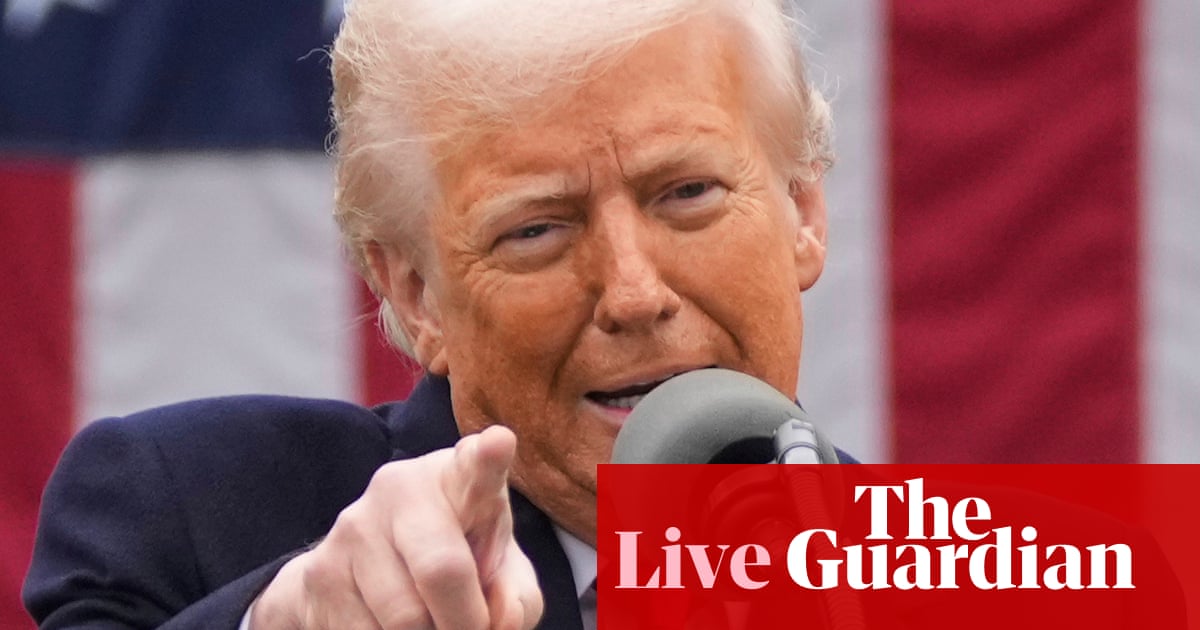Hello and welcome to theUS politicslive blog. I’m Tom Ambrose and I will be bringing you the latest news lines over the next few hours.
We start with news thatpresident Trump’s top economic advisers have said they would not be deterred by a court ruling that declared many of the administration’s tariffs illegal.
They cited other legal options the White House could use to pressure China and other countries into trade talks.
They also indicated that Trump had no plans to extend a 90-day pause on some of the highest tariffs, making it more likely those duties will take effect in July.
“Rest assured, tariffs are not going away,” Commerce Secretary Howard Lutnick said onFox News Sunday.
Asked about the future of the suspended reciprocal tariffs first announced in April, Lutnick added: “I don’t see today that an extension is coming.”
It comes asChina accused the US of “seriously violating”the fragile US-China detente that has been in place for less than a month since the two countries agreed to pause the trade war that risked upending the global economy.
China and the USagreed on 12 Mayto pause for 90 days the skyrocketing “reciprocal” tariffs that both countries had placed on the others goods in a frenzied trade war that started a few weeks earlier.
Tariffs had reached 125% on each side, which officials feared amounted to virtual embargo on trade between the world’s two biggest economies.
In other news:
The US veterans agency has ordered scientists not to publish in journals without clearance.The edict, laid down in emails on Friday by Curt Cashour, the VA’s assistant secretary for public and intergovernmental affairs, and John Bartrum, a senior adviser to VA secretary Doug Collins, came hours after the article published in the New England Journal of Medicine.
Russell Vought, the director of the office of management and budget (OMB), on Sunday cast doubt on the constitutional obligation of the White House to ask Congress to sign off on Donald Trump’smassive cutsto the federal workforce spearheaded byElon Musk.Vought indicated the White House preferred to rely on “executive tools” for all but a “necessary” fraction of the cuts instead of submitting the whole package of jobs and agency slashing that took place via the so-called “department of government efficiency” (Doge), to the congressional branch for its official approval.
The US Department of Homeland Security (DHS) removed a list of “sanctuary” states, cities and counties from its websitefollowing sharp criticism from a sheriffs’ association that said a list of “noncompliant” sheriffs could severely damage the relationship between theTrump administrationand law enforcement.
The White House budget director Russ Vought on Sunday dismissed as “totally ridiculous” fears expressed by voters that cuts to benefits in the huge spending billpassed bythe House will lead to premature deaths in America.Donald Trump’sOne Big Beautiful Bill Act, now awaiting debate in the US Senate, will slash two major federal safety net programs,Medicaid, which provides healthcare to poor and disabled Americans, and the Supplemental Nutrition Assistance Program (Snap), which helps people afford groceries, which will affect millions of people if it becomes law.
